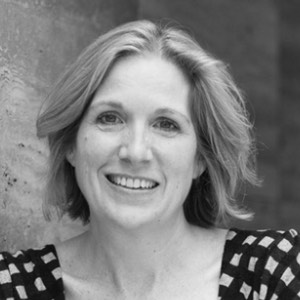关于Mathigon
Everything in our world follows mathematical laws: from the motion of stars and galaxies to the transmission of phone signals, bus timetables, weather prediction and online banking. Mathematics lets us describe and explain all of these examples, and can reveal profound truths about their underlying patterns.






Unfortunately the school curriculum often fails to convey the incredible power and great beauty of mathematics. In most cases, school mathematics is simply about memorising abstract concepts: a teacher (or a video, or a mobile app) explains how to solve a specific kind of problem, students have to remember it, and then use it to solve homework or exam questions. This has changed very little during the last century, and is one of the reasons why so many students dislike mathematics.
“It is a miracle that curiosity survives formal education.”
– Albert Einstein
In fact, the process of studying mathematics is often much more important than the actual content: it teaches problem solving, logical reasoning, generalising and abstraction. Mathematics should be about creativity, curiosity, surprise and imagination – not memorising and rote learning.
Mathigon is part interactive textbook and part virtual personal tutor. Using cutting-edge technology and an innovative new curriculum, we want to make learning mathematics more active, personalised and fun.

Active Learning
Rather than telling students how to solve new kinds of problems, we want them to be able to explore and “discover” solutions on their own. Our content is split into many small sections, and students have to actively participate at every step before the next one is revealed: by solving problems, exploring simulations, finding patterns and drawing conclusions.
We built many new types of interactive components, which go far beyond simple multiple choice questions or textboxes. Students can draw paths across bridges in Königsberg, run large probability simulations, investigate which shapes can be used to create tessellations, and much more.

Personalisation
As users interact with Mathigon, we can slowly build up an internal model of how well they know different related concepts in mathematics: the knowledge graph. This data can then be used to adapt and personalise the content – we can predict where students might struggle because they haven’t mastered all the prerequisites, or switch between different explanations based on students’ preferred learning style.
A virtual personal tutor guides you step-by-step through explanations and gives tailored hints or encouragement in a conversational interface. Students can even ask their own questions.

Storytelling
Using Mathigon requires much more effort and concentration from students, compared to simply watching a video or listening to a teacher. That’s why it is important make the content as fun and engaging as possible.
Mathigon is filled with colourful illustrations, and every course has a captivating narrative. Rather than teaching mathematics as a collection of abstract facts and exercises, we use real life applications, puzzles, historic context, inter-disciplinary connections, or even fictional stories to make the content come alive. This gives students a clear reason why what they learn is useful, and makes the content itself much more memorable.
All these goals are difficult to achieve in a classroom, because a single teacher simply can’t offer the individual support required by every student. Of course, we don’t want to replace schools or teachers. Mathigon should be used as a supplement: by students who are struggling and need additional help, students who want to go beyond what they learn at school, or even by teachers in a blended learning environment.
The ideas of active learning and personalised education are nothing new – teachers and researchers have been experimenting and writing about it for many years. Mathigon is one of the first implementations on a fully digital platform, which means that we can reach a much larger number of students. Of course, we are just getting started and there is still a long way to go.
One of the key underlying concepts is constructivism, the belief that students need to “construct” their own mental models of the world, through independent exploration, discovery and project-based learning. Constructionism was first developed by psychologist Jean Piaget (1896 – 1980), and then extended by mathematician, computer scientist and educator Seymour Papert (1928 – 2016).
There is plenty of research and evidence supporting this approach to teaching mathematics, and many existing ideas or examples we use as inspiration:
What Makes People Engage With Math – TED Talk
Grant Sanderson, 3blue1brown (2020)
Numbers at play: dynamic toys make the invisible visible
Scott Farrar, May-Li Khoe, Andy Matuschak (2017)
The 2 Sigma problem: The Search for Methods of Group Instruction as Effective One-to-One Tutoring
Benjamin Bloom (1984)
Do schools kill creativity? – TED Talk
Ken Robinson (2006)
Media for Thinking the Unthinkable
Bret Victor (2013)
Essays
The Value of Teaching Mathematics
Mathematics Outreach and Popularisation
Content and Engineering










Philipp Legner
Philipp studied mathematics at Cambridge University, and mathematics education at the UCL Institute of Education in London. He founded Mathigon while volunteering with outreach projects in Cambridge.
Previously, Philipp worked as software engineer at Google, Bloomberg, Wolfram Research and Goldman Sachs. He consults for educational organisations like MoMath and IMAGINARY, and regularly speaks at conferences all around the world.
David Poras
David studied mathematics at Vassar College and education at the University of Massachusetts. He is a middle school math teacher at Weston Middle School in Weston, MA. In his 20+ years at the school, David has held a variety of leadership roles. In 2017, he was a runner-up for the Rosenthal Prize for Innovation and Inspiration in Math Teaching awarded by MoMath.
Eda Aydemir
Eda studied mathematics education at Bogazici University and has master’s degrees in Educational Supervision and Instructional Design. She has been teaching mathematics since 2003 and has been organizing Math Events, Exhibitions, and Math Weeks since. Eda has also spoken at several educational conferences in Turkey, and she is writing about math education at funmathfan.com.
Advisory Board







Cindy Lawrence
Cindy is the Executive Director and CEO of MoMath, the National Museum of Mathematics in New York City, where she works to change public perceptions of mathematics.
Conrad Wolfram
Conrad is the co-founder and CEO of Wolfram Research Europe, the makers of Mathematica and Wolfram|Alpha. He also founded the Computer-Based Math Project, to reform maths education.
James Tanton
James is the founder of Global Math Week and mathematician-at-large for the Mathematical Association of America. He is committed to sharing the delight and beauty of the subject.
Rich Miner
Rich is a co-founder of Android, partner at Google Ventures, and director at Google, where he works on new products for students and teachers.
Sarah Lee
Sarah is a former startup founder with over 16 years of experience scaling exceptional education programs and schools, and coaching founding teams of EdTech Startups globally.
Simon Singh
Simon is the author of bestselling books like “Fermat’s Last Theorem”, “The Code Book” and “The Simpsons and Their Mathematical Secrets”, and founder of the charity Good Thinking.
Translations
- Arabic: Jad Succari
- Catalan: David Virgili
- Chinese: iuway, Kaka, jexchan
- German: Harald March
- Italian: Michela Riganti, Letizia Diamante, Antonio La Barba
- Portuguese: Hugo Tadashi
- Romanian: Claudia Dumitrascu, Ariana-Stanca Vacaretu
- Russian: Аня Никитина
- Spanish: Scott Nepple, Héctor Palacios, Carlos Ponce Campuzano, Pilar Fortuny Ayuso
- Turkish: Utku Aytaç, Can Ozan Oğuz, Ebru Nayir, Murat Uyar, Buket Eren, Eda Aydemir, Begüm Gülşah Çaktı, Ayşe Yiltekin, İsmail Kara
- Vietnamese: Ngo Thuy Anh Tuyet
Volunteers and Supporters
We want to thank all these volunteers and supporters for their contributions, advice, proofreading, feedback or generous donations:
- Justin Baron
- Srikanth Chekuri
- Alison Clark-Wilson
- Dirk Eisner
- Susan Jobson
- Tim Knight
- Michal Kosmulski
- Wolfgang Laun
- Joel Lord
- Rose Luckin
- Samantha Marion
- Alex McCall
- Manuel Menzella
- Huw Mort
- Meenakshi Mukerji
- Andy Norton
- William O’Connell
- Antonella Perucca
- Anwit Roy
- Kostas Symeonidis
- Andre Wiederkehr
- Danny Yee
- Arul Kolla
- John Green
- Yi-Hsuan Lin
- Samuel Watson
- Enrico Poli
- Zach Geis
- Jack Kutilek
- leeyeewah
- Leif Cussen
- Chris Peel
- Sergei Kukhariev
- Alexander Shapoval
- Andrea Michi
- Troy Weets
- 安強 朱
- Howard Mullings
- Oleksandr Prokopenko
- Evgeny Sushko
- Israel Parancan Navarro
- Josep lluis Mata
- Valeri Jean-Pierre
- Alex Munger
- Jay Mitchell
- Denis Zuev
- Matematika Tivat
- Nafez Al Dakkak
- Amy Dai
- Clara Marx
- Kimberly Lilly
- Angela Bottaro
- Yolanda Campos
- rittersg
- Tom Leys
- Anuj More
- Srini Kadamati
- Howard Lewis Ship
- Leo
- Becca LeCompte
- Reymund Gonowon
- Axek Brisse
- Dev Karan Ahuja
- Guillaume
- Antony Mativos
- Bryan Shull
- Matthew Deren
- Razmik Badalyan
- Georgreen Mamboleo
- Yijia Wang
- Devin Wilson
- billxiong
- dacapo
- Cyril Ghys
- charlespipin
九个原则教出不同凡响的数学
1、启发式学习
数学应该能够启发学生、鼓励学生,而不是使学生害怕、困惑。我们应该向学生展示数学令人称奇的美丽和无穷的魅力,使每个人都愿意“做数学”。
2、故事性
不要一开始就给学生讲一堆抽象的结论,应该将每一个话题讲得有趣味,而且要让学生知道,他们要学习的内容为什么是有用且有意义的。这么做不仅可以使课堂更有趣更能激发学生思考,也能使所学习的内容更容易被记住。
故事可以来源于实际生活(如预测天气)、历史事件(如珠穆拉玛峰的高度测量)、数学谜题(如哪种形状能够密铺空间)、甚至可以用小说里的人物。故事里甚至可以有一些悬疑和曲折,学生们一开始不知道故事的结局,最后的数学结论会使他们感到惊讶。
3、探索和创造
数学的学习过程往往比结果和知识更重要。学习过程可以培养学生解决问题的能力、逻辑推理能力、批判性思维、抽象和归纳的能力。这些能力往往可以迁移到生活的方方面面,即使具体的数学知识和解题技巧在生活中并无运用。
要获得这些能力,学生应该能自由地探索和创造。在老师的帮助下,学生能够成为数学规律的发现者、新想法的创造者,而不仅仅是流程和结果的被动消费者。
4、数学无处不在
我们的生活被数学模式和数学关系包围着。学生应该能够辨识生活中的数学,并且能利用数学能力解决生活问题。
5、无用但有意义
学校里的数学,大多数在生活中都用不上,即使学生以后成为科学家或软件工程师。其实这也没关系,学习数学的一个重要原因是解决问题的能力和批判性思维的训练。学校里“无用的”科目其实很多,如莎士比亚的十四行诗、莫扎特的交响乐、牛顿的运动定律等。事实上,这些科目教给我们文化和历史,帮助我们理解所生活的世界,使我们的生活有意义。
然而,现在许多数学课毫无意义,这才是问题所在。与其教授乏味又无意义的数学,如长除法、分母有理化、两栏式几何证明,不如教一些令人激动又很美的数学,如图论、混沌、数据科学、密码学或博弈论,这些数学对我们的生活有更直接的影响。他们能帮助学生更好地理解我们生活的世界,即便在日常生活中他们并没有直接被应用。
6、数学是看得见的
方程是有用的,但也有很多更具代表性的数学概念和数学关系。数学内容应尽量可视化且丰富多彩。
7、直觉比严谨和熟练更重要
数学家们研究课题时,他们可能首先想到数学的严谨和数学证明的层次;高中生思考数学时,可能首先想到解题的熟练程度。事实上,我们不需要从学校的数学课上学到这两种技能。
关键点应该集中在数学直觉和理解力上:预估问题的答案、验证已经存在的答案、辨识并归纳出数学模式、推导出记不清处的过程和等式、意识到大众的错误和误解(尤其是概率和统计这样的数学分支)。
数学上的许多概念会有多种表达形式(如分数和阴影面积、小数、百分数、群、比率之间的关系),学生应该尽可能地熟悉各种数学表达形式,理解它们的关系,并能够知道,一个具体问题用哪一种数学形式更合适。
8、讨论与合作
数学绝不是一种孤芳自赏的追求,许多真正的问题不仅仅有一个正确答案。讨论和合作是数学中每一个课程的关键。
9、数学是活的
为了使数学更鲜活,像各个流派的数学家和科学家一样,追溯数学的历史、学习近期的数学发现、了解目前的数学研究是无比重要的。
How can we make education more about exploring and creativity, rather than rote-learning and memorising, with personalised content and engaging storytelling? These nine principles guide our team when developing great content for learning mathematics.
1. Learning Should Inspire
Mathematics should inspire and empower students, not scare or confuse them. We should show the surprising beauty and great power of mathematics – and that everyone can “do maths”.
2. Tell a Story
Storytelling can motivate students, make the content more memorable, and justify why what you’re learning is important – including real-life applications, curious puzzles, or historical background. More…
2. Tell a Story
Rather than presenting mathematics as an abstract collection of results, we should introduce every new topic with an interesting narrative that shows students why what they are about to learn is useful and worthwhile doing. This is not just more interesting and motivating, but it also makes the content much more memorable.
Stories could be based on real-life applications (“predicting the weather”), historical events (“measuring the height of Mount Everest”), a mathematical puzzle (“which shapes tessellate”) or even fictional characters. There could even be some suspense and plot twists, where students don’t initially know where the story might lead, and are later surprised with an unexpected mathematical result.
3. Exploration and Creativity
Allow students to explore, be creative, make mistakes, practise critical thinking, and discover new ideas – rather than just telling them the final results and procedures to memorise. More…
3. Exploration and Creativity
In mathematics, the process of learning is often more important than the actual results and knowledge: it teaches students problem-solving, logical reasoning, critical thinking, abstraction and generalisation. These skills are transferable to many other parts of life, even if the specific mathematical topics have no real-life applications.
To make this most effective, students should be able to freely explore and be creative. With the guidance of a teacher or tutor, they should be able to discover new patterns and ideas on their own, and not just be the consumers of pre-packaged results and procedures.
4. Mathematics is Everywhere
We are always surrounded by mathematical patterns and relationships. Students should be able to recognise these, and harness the power of maths to solve problems in everyday life.
5. Not Useful, but Meaningful
Not all topics in the curriculum have to be useful in everyday life (neither are Mozart or Shakespeare), but every topic should be meaningful – because of its applications or mathematical significance. More…
5. Not Useful, but Meaningful
A large part of the mathematics that students learn at school won’t be useful in everyday life, even if they end up working as a scientist or software engineer. And that’s ok – as we’ve seen in principle 3, one of the reasons to study mathematics is to learn transferable skills like problem-solving and critical thinking. There are many other subjects in school that are also not “useful”, from Shakespeare’s Sonnets to Mozart’s Symphonies, and even Newton’s laws of motion. Instead, these subjects tell us about culture and history, or they help us understand and make sense of the world around us.
However, a lot of the existing mathematics curriculum is also not meaningful – and that is a problem. Rather than teaching about boring and essentially meaningless topics like long division, rationalising denominators or two-column geometry proofs, we should teach about networks, chaos, data science, cryptography, or game theory: topics which are exciting and beautiful, and which have a direct impact on all our lives. They help students better understand the world we live in, even if they are not directly useful in everyday life.
6. Mathematics is Visual
Equations are useful, but there are often much better representations of mathematical concepts and relationships. The content should be as visual and colourful as possible.
7. Intuition over Rigor or Fluency
Rigor is an important part of mathematics, and there is also a place for practising fluency – but the main goal should be to develop intuition, deep understanding, and general numeracy. More…
7. Intuition over Rigor or Fluency
When mathematicians think about their subject, they might primarily associate the rigor and formality of proofs. When high-school students think about mathematics, they might associate fluency problems when preparing for exams. In reality, neither of these two approaches are what we need from school mathematics.
The focus should be much more on mathematical intuition and understanding: estimating the answer to problems or verifying an existing answer, recognising and generalising patterns, deriving procedures and equations which you don’t remember exactly, and being aware of common mistakes and misconceptions (especially in topics like probability and statistics).
Many concepts in mathematics have a wide range of different representations (e.g. fractions as shaded areas, decimals, percentages, groups or rates). Students should be familiar with as many representations as possible, understand their relationships, and be able to decide which one is most suitable for a specific problem.
8. Discussion and Teamwork
Mathematics is rarely a solitary pursuit, and many real problems don’t just have a single, correct answer. Discussions, collaboration and teamwork should be a key part of every curriculum.
9. Mathematics is Alive
To make mathematics more relevant, it is important to portray its history, recent discoveries, and current research – as well as the diverse groups of mathematicians and scientists doing this work.